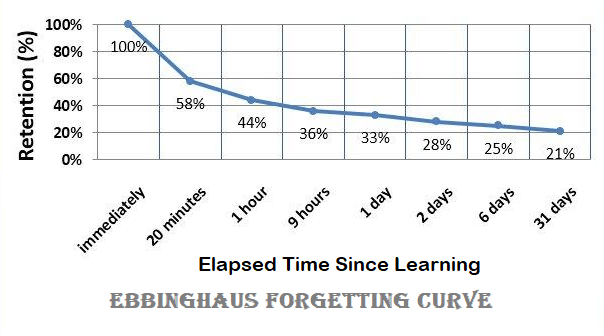- Home/
- MP State Exams (MPPSC)/
- Article
Revision Techniques for MPPSC Exams
By BYJU'S Exam Prep
Updated on: September 11th, 2023

In competitive exams, facts and figures play a critical role in cracking the exam, and hence they must be remembered well. But often, it is seen and expressed by the aspirants that they find it difficult to retain these in their memories. Remembering them correctly is very important, especially for the Preliminary exam of the State Public Services examination, and equally relevant for MPPSC Exams.
In this article, we will be sharing some methods and tips that, if included in the study regime, will certainly help in remembering abstract facts and increasing retention powers. This article is important for MPPSC Preliminary Exam and MPPSC Mains Exam.
Table of content
Revision Techniques for MPPSC Exams
Very often, aspirants raise the issues of poor memory and lack of good retention ability. Basically, they find it difficult to remember and recall the figures and facts, and it becomes cumbersome for an aspirant. Facts not only in Prelims but in Mains Exam also help to secure an edge by quoting them and substantiating the answers. It increases the qualitative representation of answers in the Mains exams and helps to fetch higher marks. So, it is imminent to boost one’s memory for clearing exams.
Recommended Revision Techniques for MPPSC Exam
a. Use of mnemonics
By using mnemonics, large pieces of information can very easily be remembered in a short and crisp manner. Recalling certain data is very effective. The best part is that it works best when used with great creativity and engagement.
Few examples are as follows:
- TARIK – the short form developed for countries surrounding the Caspian Sea
T- Turkmenistan
A- Afghanistan
R- Russia
I- Iran
K- Kazakhstan
- HOMES for great lakes of North America
H- Huron
O- Ontario
M- Michigan
E- Erie
S- Superior
- KFC can be used to remember for Triratna of Jainism
K- Right Knowledge
F- Right Faith
C- Right Conduct
MEN vs Hyder Ali
M-Maratha
E-English
N-Nizams
BHAJSAB for remembering the Mughal rulers in a chronological order
B- Babur
H-Humayun
A-Akbar
J- Jahangir
S- Shah Jahan
A-Aurangzeb
B-Bahadur Shah Zafar
International Relations
MBBS PAIN can be effectively used to remember SAARC countries
M-Maldives
B-Bangladesh
B-Bhutan
S-Sri Lanka
P-Pakistan
A-Afghanistan
I-India
N-Nepal
b. Pictorial learnings
The mind perceives information better when presented in terms of graphical and visual representation when compared to plain text. It is advisable to extensively use audio-visual coverage of the syllabus. The use of flow charts, diagrams as compared to plain text help retain information better.
c. Hypothetical theory creation
Information is grasped better when weaved in the form of stories and helps retain for the long term. Remember, the competitive examination is required long-term prep. Hence such associations help.
e.g., Viceroy in Chronological manner
“Cold Morning, Hungry Columbus Reached India With Light Warm Milk”
|
Lord Curzon |
1899-1905 |
|
Lord Minto |
1905-1910 |
|
Lord Hardinge |
1910-1916 |
|
Lord Chelmsford |
1916-1921 |
|
Lord Reading |
1921-1926 |
|
Lord Irwin |
1926-1931 |
|
Lord Willingdon |
1931-1936 |
|
Lord Linlithgow |
1936-1944 |
|
Lord Wavell |
1944- 1947 |
|
Lord Mountbatten |
1947-1948 |
d. Periodic Revision
Mere studying without a dedicated slot for revision wastes everything. So, to keep the information for long term retention requires periodic revision. Daily, weekly and monthly revision is essential.

How frequent revision should be done?
As the time period increases, the retention rate starts to decrease. A well-planned revision schedule is very beneficial. Recommended revision plan is the one that includes revision slots for weekly, fortnightly, monthly or bi-monthly basis.
Revision is essential for two factors; one, one cannot remember everything that he/she reads. Revision helps associate the conceptual aspects and retain facts and figures. Secondly, revision ensures syllabus coverage properly and timely before the exam. It reduces anxiety and helps you perform better.
e. Debate and Discussion
Learning through discussion among the peer group helps understand and retain better by being completely involved in the topics. It is essential to learn through teaching and engaging in discussions. It helps to reinforce the information better.
f. Short study sessions
Forty minutes and the 1-hour session is more effective over the long hours’ sessions when it comes to learning and performing with the concepts. Therefore, short time frames are better for reflecting upon the questions. The mind learns better when given diverse acts and assessed time intervals. This helps reinforce and revise the topics with better clarity.
Additional Tips for Better Revision
1. Short Note creation
Comprehensive notes creation always helps better cover the syllabus. It is a good strategy, and this tactic works well for many aspirants. Detailed notes become cumbersome, and for the last-minute revision, short notes serve better.
2. To-Do List creation
It is a crucial part of the MPPSC preparation and revision strategy as subjects can be given equal revision timeslot as per the weightage. This also helps track the level of preparation.
Download Free Pdf Of this Article
MPPSC के लिए Complete Free Study Notes, अभी Download करें
Download Free PDFs of Daily, Weekly & Monthly करेंट अफेयर्स in Hindi & English
NCERT Books तथा उनकी Summary की PDFs अब Free में Download करें



